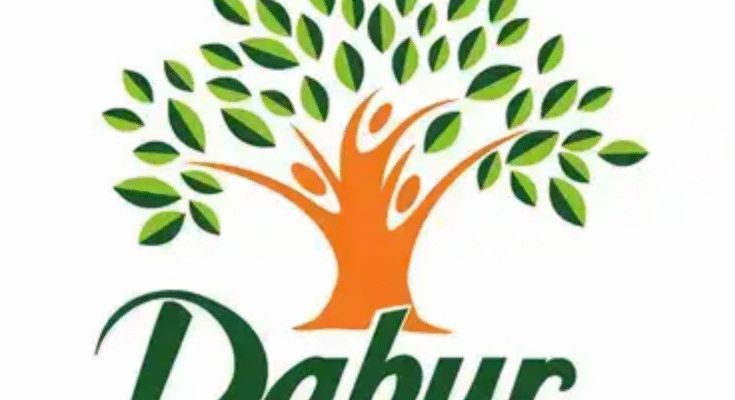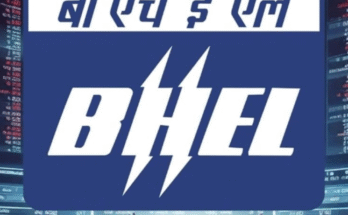Dabur Share Price Analysis:
Introduction:
Dabur India Limited is one of India’s oldest and most trusted Fast-Moving Consumer Goods (FMCG) companies. Founded in 1884 by Dr. S.K. Burman, Dabur has built a legacy based on Ayurvedic and natural healthcare products. Over the years, the company has expanded into various segments such as personal care, health supplements, home care, and food products. Because of its strong brand reputation, diversified portfolio, and wide distribution network, Dabur’s stock is considered a stable investment option in the Indian equity market. The Dabur share price has shown resilience over the years, supported by consistent earnings, strategic acquisitions, and a steady dividend policy.
Dabur Share Price Performance:
As of recent trading sessions in 2025, Dabur India’s share price has been hovering in the range of ₹520 to ₹560 per share on the National Stock Exchange (NSE). The stock has demonstrated moderate volatility compared to other FMCG peers, reflecting investor confidence in its fundamentals and long-term growth outlook. Over the past year, Dabur’s share price has experienced both ups and downs due to changing market conditions, raw material costs, and fluctuations in consumer demand. However, the overall trend remains stable with gradual upward momentum.
The company’s market capitalization stands above ₹90,000 crore, making it one of the top FMCG players in India. Its stock is part of major indices like Nifty FMCG and Nifty 100, attracting interest from mutual funds, foreign institutional investors (FIIs), and retail investors.

Financial Performance and Strengths:
Dabur’s financial strength is a key factor that supports its share price stability. For the financial year 2024-25, Dabur reported a consistent rise in revenue and profit driven by both domestic and international business growth. The company’s consolidated revenue crossed ₹12,000 crore, with net profit growing steadily due to efficient cost management and strong demand for its health and nutrition products.
The company’s EBITDA margins have remained stable at around 20%, reflecting operational efficiency. Despite inflationary pressures, Dabur has managed to maintain profitability by optimizing its supply chain and controlling input costs. Its strong cash flow and low debt levels give it the flexibility to invest in new categories, marketing, and acquisitions.
Product Portfolio and Business Segments:
Dabur operates through multiple business segments that contribute to its revenue diversity:
Health Care – This includes Ayurvedic medicines, health supplements like Dabur Chyawanprash, and over-the-counter products. These products form the core of Dabur’s traditional strength and continue to perform well, especially during seasonal demand surges.
Home & Personal Care – This category includes brands such as Dabur Amla hair oil, Vatika shampoo, and Dabur Red toothpaste. These products enjoy strong brand loyalty in India and abroad.
Foods & Beverages – Under the brand Real, Dabur offers fruit juices, honey, and other food products. This segment has witnessed strong growth, particularly in urban areas where demand for healthy food options is increasing.
International Business – Dabur has a strong presence in markets like the Middle East, Africa, and South Asia. Its international business contributes nearly 25–30% of total revenue, providing a natural hedge against domestic economic fluctuations.
Recent Developments Affecting Dabur Share Price:
In recent months, several developments have influenced Dabur’s share price trend:
Acquisition of Badshah Masala: Dabur acquired Badshah Masala to enter the growing spices market. This strategic move helps diversify its product range and opens new growth avenues.
Expansion in Rural Markets: The company continues to strengthen its rural distribution network, targeting over 1 lakh villages across India. Rural demand plays a crucial role in Dabur’s growth strategy.
Focus on E-commerce and Digital Marketing: Dabur has been increasingly leveraging digital platforms for marketing and sales. Online channels now contribute a notable portion of its revenue, especially among young consumers.
Sustainability Initiatives: Dabur has focused on eco-friendly packaging and renewable energy usage, aligning with global sustainability goals. This enhances its brand image among conscious consumers and investors.
Competitors and Market Position:
Dabur faces competition from other FMCG giants like Hindustan Unilever (HUL), Patanjali, Marico, and Emami. Despite tough competition, Dabur holds a strong position in the Ayurveda-based product segment. The company’s long-standing heritage, trust, and diversified product portfolio provide it with a competitive edge.

Investor Sentiment and Institutional Holdings:
Investor sentiment toward Dabur has generally remained positive due to its consistent performance and defensive nature during market volatility. FMCG stocks like Dabur are often considered safe havens when the market faces uncertainty. Foreign and domestic institutional investors hold significant stakes, reflecting confidence in the company’s long-term growth.
Dabur’s dividend payout policy further adds to its attractiveness among investors seeking stable returns.
Risks and Challenges:
Despite its strengths, there are certain risks that investors should consider:
Raw Material Price Volatility: Prices of key raw materials like honey, herbs, and packaging materials can impact margins.
Rural Demand Dependence: Sluggish rural consumption due to inflation or low monsoon can affect sales growth.
Intense Competition: The entry of new brands and private labels in the FMCG space increases competitive pressure.
Global Market Risks: Fluctuations in foreign currency and political instability in international markets can affect revenue from overseas operations.

Future Outlook:
The future outlook for Dabur India remains optimistic. The company’s strategy focuses on expanding its health and wellness portfolio, strengthening its presence in rural India, and scaling up its international operations. With growing awareness of natural and herbal products, Dabur is well-positioned to capitalize on changing consumer preferences.
For more info: https://www.marketscreener.com/news/dabur-india-limited-seeks-to-invest-in-new-age-digital-first-businesses-ce7d5cdadf8bf224
Conclusion:
In conclusion, Dabur India Limited’s share price reflects the company’s consistent performance, trusted brand equity, and focus on sustainable growth. Its diversified product portfolio, financial stability, and strategic expansion plans provide a solid foundation for long-term investors. While short-term market fluctuations may impact the share price, the overall outlook for Dabur remains positive. For investors seeking steady returns from a fundamentally strong FMCG company, Dabur continues to be a reliable choice in the Indian stock market.




